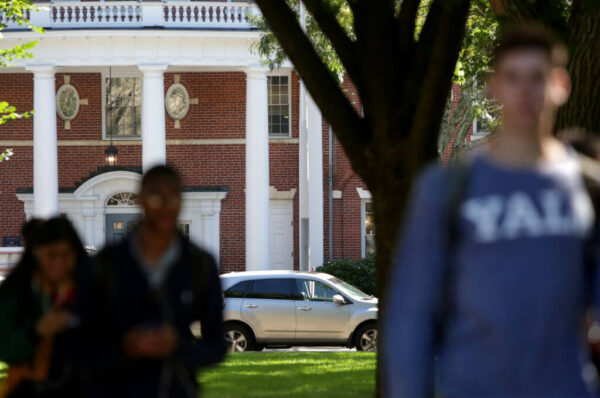‘We Apologize’: Yale University Admits Historical Ties to Slavery Amid Wave of Regret By Ivy League Schools; No Clear Sign of Reparations
Yale University acknowledged historical ties to slavery and issued an extraordinary apology after several years of research revealed the extent of the school’s involvement in slavery and the lucrative ways in which its early leaders benefited.
Yale announced a range of initiatives and actions it planned to pursue in light of an internal review by the Yale and Slavery Research Project that found some of the school’s founders owned slaves.
“Today, on behalf of Yale University, we recognize our university’s historical role in and associations with slavery, as well as the labor, the experiences, and the contributions of enslaved people to our university’s history, and we apologize for the ways that Yale’s leaders, over the course of our early history, participated in slavery,” Yale President Peter Salovey said in the statement.
“Confronting this history helps us to build a stronger community and realize our aspirations to create a better future,” Salovey said.
The university also published a report that chronicles the research — titled “Yale and Slavery: A History” — written by Yale history professor David W. Blight, who won the 2019 Pulitzer Prize in history for his biography, “Frederick Douglass: Prophet of Freedom.”
There were several other eye-opening facts in the report, including that the school’s oldest campus building, Connecticut Hall, was constructed with ”the labor of enslaved people.”
Researchers also found that in 1831, prominent members of the Yale community, along with lawmakers in New Haven, opposed the establishment of America’s first Black college.
“Although there are no known records of Yale University owning enslaved people, many of Yale’s Puritan founders owned enslaved people, as did a significant number of Yale’s early leaders and other prominent members of the university community, and the Research Project has identified over 200 of these enslaved people,” the statement continued.
“The majority of those who were enslaved are identified as Black, but some are identified as Indigenous.”
The university vowed to take actions that would attempt to make amends for past injustices.
“The university’s actions in response to the findings focus on increasing educational access; advancing inclusive economic growth; better reflecting its history across campus; and creating widespread access to Yale’s historical findings,” the university said.
Yale joins a growing number of Ivy League institutions that are confronting the lingering shadow of slavery more than 158 years after the end of the Civil War.
Two years ago, Harvard University committed $100 million to its endowment to examine its historical ties to slavery, later issuing a report that revealed how Harvard profited from human trafficking in the 17th and 18th centuries.
In March 2021, students at Brown University voted to support reparations for descendants of enslaved people a decade after Brown revealed its historical connections to slavery.
In 2020, Princeton University removed former President Woodrow Wilson’s name from its School of Public and International Affairs due to his racist beliefs and policies.

